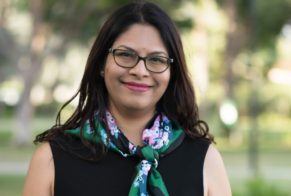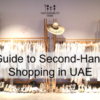Tribe, every year world celebrates World Breastfeeding Week from 1st to 7th August. To encourage breastfeeding and improve the health of babies around the world, the World Health Organization (WHO), the United Nations International Children’s Emergency Fund (UNICEF) together with World Alliance for Breastfeeding Action commemorate this week since 1990.
However, socially, we can still notice stigma attached to breastfeeding and not everyone is comfortable talking about this topic, even though didn’t most of us were nourished this way during infancy? Personally, as part of my natural, and green parenting I preferred to breastfeed my son for 1.5 years. We never even bought infant formula milk, bottles, and I’m glad that I could avoid all the sterilization and sanitizing hassles around it. It was not a very easy journey at the start and there were great efforts on my part to overcome preliminary challenges and later keep going till 18 months. However, some pleasant nursing rooms in places like Dubai Mall added some comfort to my journey. Thanks to my special nursing covers, I even nursed my child in public places like planes, airports, restaurants at times. I personally feel from my experience, breastfeeding is a necessary and normal part of motherhood. However, looking at the number of people finding it weird and not so correct portrayal of it in popular culture confirms that we need more social awareness on this topic.
In this article, let’s attempt to normalize the discussion around breastfeeding, and let’s approach it from a sustainability angle.
The breastfeeding journey is different for every mother, some find it more challenging than others. It is definitely a personal decision of the mother. However, undeniably it’s the best nourishment for infants. World Health Organization says mother’s milk is the ideal food for infants. It’s safe, clean, provides essential nutrients required for a child’s growth and development. Moreover, breastmilk contains important antibodies and acts as a baby’s first and natural vaccine, protecting them from much common childhood illness by improving their immunity.
Mother too gets benefitted, breastfeeding may result in lower risks of cancers and several diseases including cardiovascular, osteoporosis, diabetes, etc.
Breastfeeding also has positive effects on the mother and child’s mental health. Through nursing mother and child develop a stronger bond. In children nourishment through lactation is linked to improved cognitive development including memory retention, enhanced social-emotional development. During nursing powerful hormones including oxytocin are released and help to improve the mother’s mental health. The results are a lower risk of postpartum depression, reduced anxiety, and stress. You can find further information and various researches are done on breastfeeding and perinatal mental health on the breastfeeding network website.
Breastfeeding is unarguably great for mother and child. However, with the help of breastfeeding, we can also make our planet healthier!
Let’s look at how breastfeeding is linked to many of the Sustainable Development Goals (SDGs) as part of the UN 2030 Agenda for Sustainable Development.
According to The Lancet series, investment in improving breastfeeding practices around the world will help in achieving sustainable development goals.
SDG 1 No Poverty:
Breastfeeding is a natural and low-cost way of feeding babies and children. Everyone can afford it without burdening the household budget as compared to artificial formula milk. So clearly breastfeeding contributes to the reduction of poverty.
SDG 2 Zero Hunger & SDG 3 Good Health and Wellbeing:
Breastfeeding is a vital source of a child’s nourishment and can save children’s lives. According to World Alliance for Breastfeeding Action, increasing rates of breastfeeding to target levels could save the lives of 820,000 children under 5 — 87 percent of them infants 6 months old and younger — every year. Moreover, breastfeeding directly contributes to improving the health and wellbeing of children and mothers.
SDG 4 Quality Education:
This goal sets a target of early childhood development, including physical and cognitive development. The association between breastfeeding and better child development as well as higher IQs and educational attainment can contribute to efforts to achieve global learning targets. Improved education and literacy are linked to better productivity and earnings which further can help in ending poverty, promoting economic growth, and reducing inequalities
SDG 5 Gender Equality, SDG 8 Reduced Inequalities & SDG 10 Decent Work and Economic Growth
WABA says breastfeeding is a great equalizer, giving every child a fair and best start in life. Breastfeeding is uniquely a right of women and they should be supported by society to breastfeed optimally. Exclusive breastfeeding can promote child spacing enabling women to delay subsequent pregnancy empowering them to exercise greater reproductive autonomy. This can give women the opportunity to return to school or work and support their families. Moreover, breastfeeding is linked to women’s workplace rights, which include nursing breaks or dedicated facilities to express milk for nursing mothers at the workplace.
SDG 12 Responsible Consumption
This goal tackles sustainable consumption. Breastmilk does not require industry for the production and is created and consumed with a minimal ecological footprint.
Now, we have seen how breastfeeding can be key to achieving many SDGs. Governments and businesses around the world need to include and improve policies and strategies to promote, protect and support breastfeeding so that collectively our societies can make faster progress toward all our development goals.
If you found our article helpful, eye-opener please do share it with your friends, family, colleagues. Together, let’s normalize the discussion around breastfeeding.
You can learn more about Green Parenting on our portal or you can also join the ‘Parenting’ Ambassadorship program here.
If you are keen to learn more about Sustainable Development Goals, access our 30-min short online course, SDG Reporting Simplified.

Amruta Kshemkalyani, an expert sustainability professional turned social entrepreneur, is the founder of the Sustainability Tribe, AK Sustainability
Read More >>
Copyright 2024 © Sustainability Tribe, Registered under 'Sustainability Tribe Marketing Management' in the U.A.E., Design by LBM INFOTECH
it is the first right of the child toward the mother.